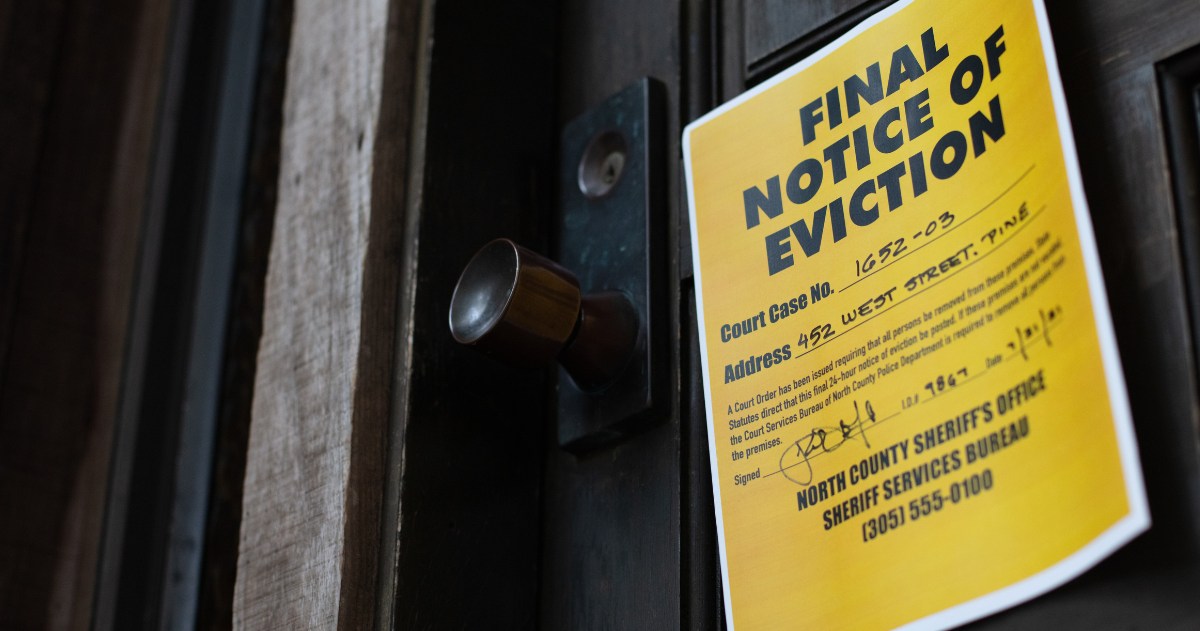There are a variety of reasons why a landlord or Toronto property owner may want to perform a “personal use” or “own use” eviction on their tenants, but few people actually know how to perform them correctly. Performing a “personal use” eviction in the incorrect manner, no matter what the actual purpose, can lead to serious violations of the Landlord and Tenant Act and land property owners in hot water with the Landlord and Tenant Board. If you are a Toronto landlord looking to perform a “personal use” eviction the right way, here’s what you need to know.
The purpose of personal use evictions
Some landlords feel the need to perform a “personal use” eviction on a tenant in order to allow them the opportunity to use the unit for themselves. These evictions are legal under the Landlord and Tenant Act when performed correctly, allowing Toronto property owners to evict tenants in order to use the home themselves or for the use of immediate family members or caregivers to the landlord or family members in special situations. This allows landlords the opportunity to use their homes for their children, in-laws, or spouses in the event of emergency situations. However, landlords who take advantage of the “landlord’s own use” allowances for the purpose of renting the unit out for a higher price may be in violation of the Landlord and Tenant Act.
Regulations regarding personal use evictions
Some Toronto property owners have unknowingly found themselves in violation of regulations set by the Landlord and Tenant Board after evicting tenants and later renting the unit out for more money. Protections put in place in the summer of 2017 say that landlords looking to perform personal use evictions on their homes must give their tenants compensation equaling one month’s rent, or alternatively offer them another similar rental unit. Under these new regulations, Toronto landlords are also now required to have the intent to occupy the “personal use” property for a period of at least one full year in order to stop property owners from immediately re-renting at higher rates.
How to go about performing personal use evictions
As a landlord, you are legally and morally obligated to performing personal use evictions in the correct manner, no matter whether you, a family member in need, or an important caregiver will be staying in the property. In order for a “personal use” eviction to take place, the landlord must fulfill the requirement of good faith, stating that you or a family member in need requires the property and will move into it within a reasonable time once the unit has been vacated. Occasional and infrequent use will not register as an allowable reason for personal use evictions, so the property must be inhabited on a full-time basis to avoid breaking regulations.
As with any kind of eviction, proper notice of 60 days must be given to tenants with a correct date of agreement termination – a notice with an incorrect date can be declared defective and the process will not be allowed to progress. Landlords must thereafter supply tenants with one month’s rent, or find them another suitable property to occupy before the eviction process can take place.
After eviction, the property must be occupied by yourself (the property owner) or an immediate family member or their required caregiver. Once the property has been officially transferred, it cannot be listed or advertised for rent within a calendar year. Toronto landlords who re-rent, convert, demolish, or advertise these units within a year of performing a “personal use” eviction can face penalties of up to $25,000, making it extremely important to follow the correct procedure.
Personal use evictions can be extremely useful to property owners in times of crisis, but they must be performed legally to avoid incurring major fines or penalties. Toronto property owners who are unsure of how to correctly perform personal use evictions on their tenants, or simply don’t have the time to follow the regulated procedures can rely on property management companies like Highgate Properties, whose knowledgeable and experienced teams know how to navigate these situations without breaking rules and regulations, and will do some in a professional and timely manner. We certainly cost a lot less than getting a fine for an improper eviction, and can manage all the day-to-day items that you may not have time for.
For more information on how the experienced property management team at Highgate Properties can make your real estate investing experience more enjoyable, contact us today!





